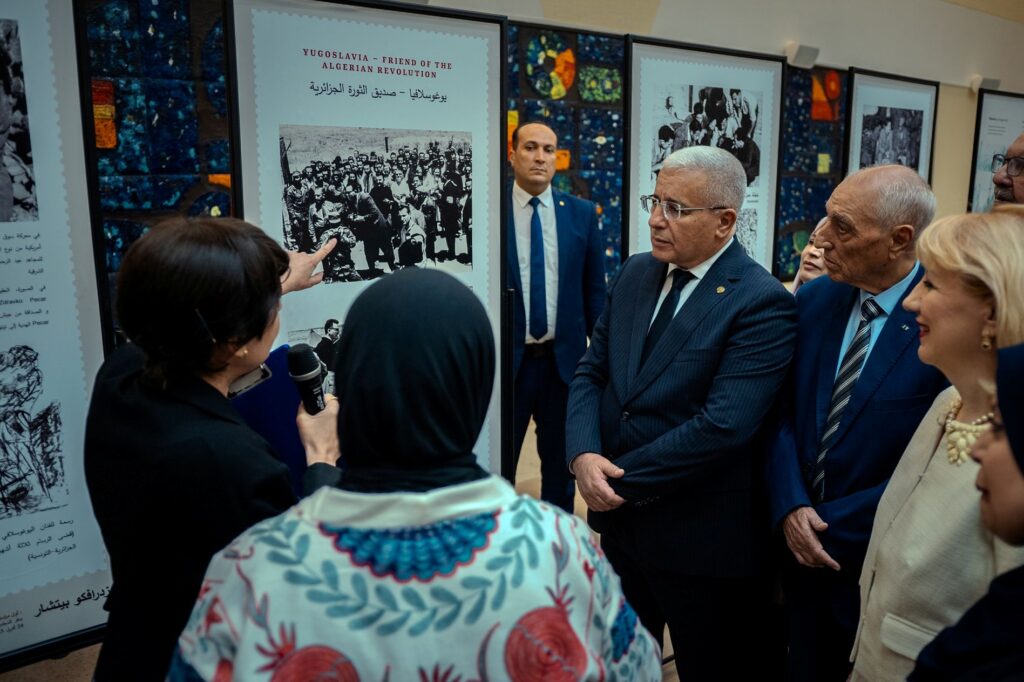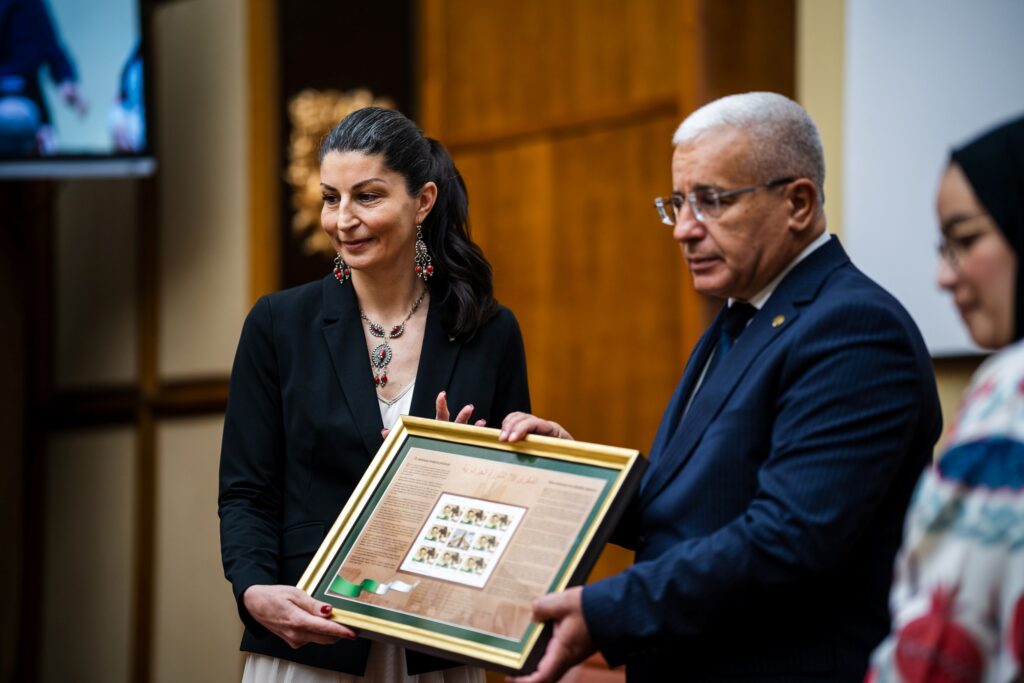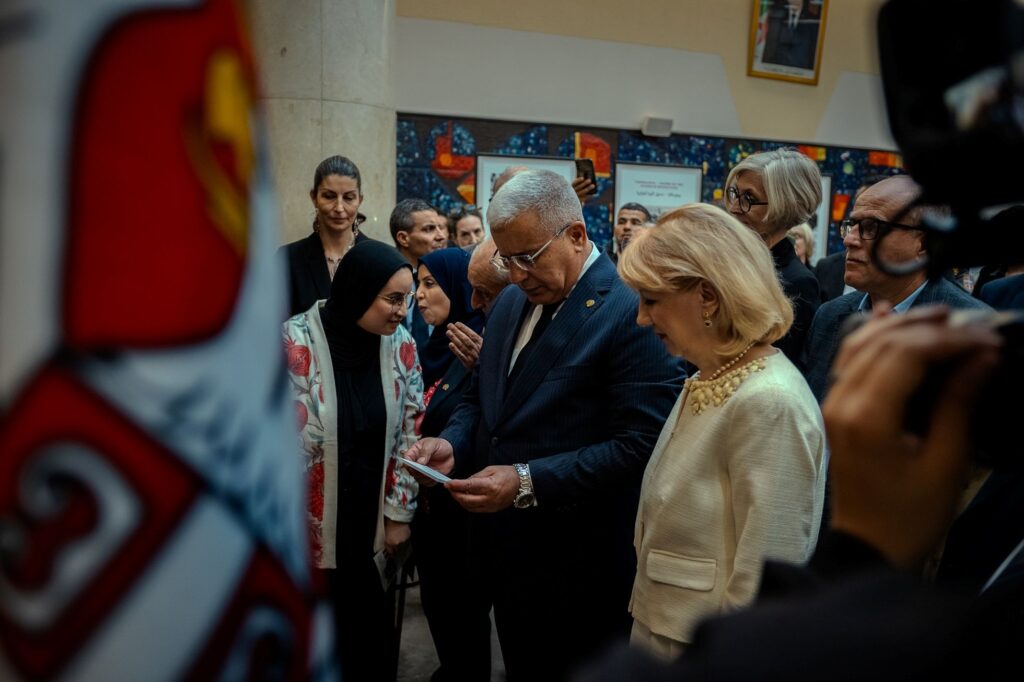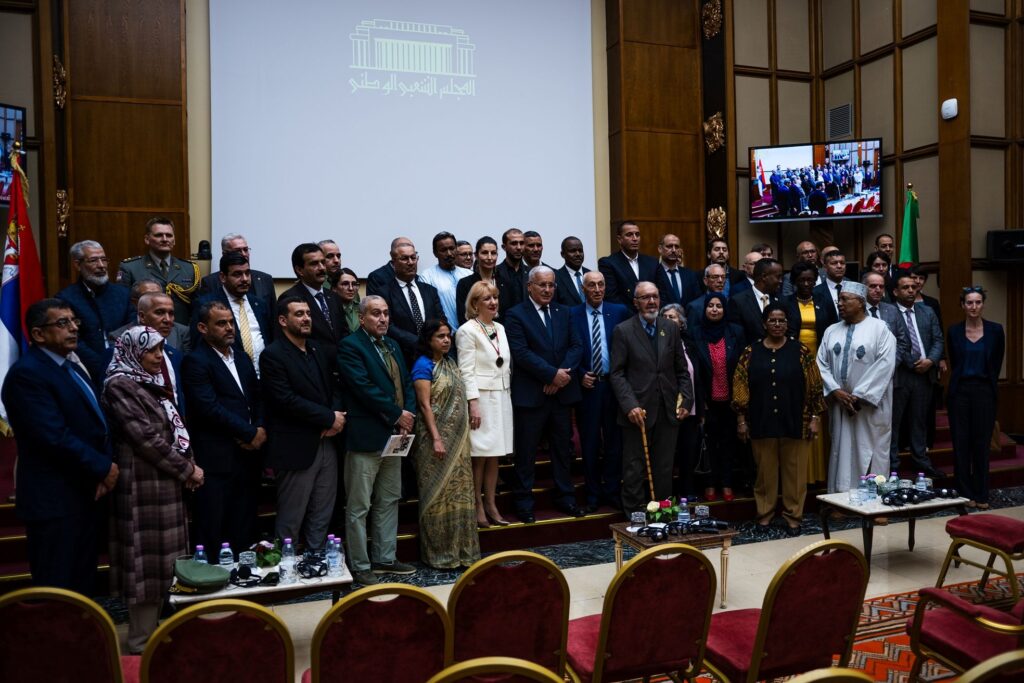The First Yugoslav Reporter of the Algerian Revolution

Organised by the Museum of African Art in Belgrade, the exhibition “Zdravko Pečar: The First Yugoslav Reporter of the Algerian Revolution” was formally opened at the National People’s Assembly of the People’s Democratic Republic of Algeria, marking a new chapter in the history of relations between Serbia and Algeria.
This event, of exceptional cultural and political significance, was held at the invitation of the President of the Algerian Parliament, Brahim Boughali, with the support of the Embassy of the Republic of Serbia in Algeria and Ambassador Ana Petković. The delegation from the Museum of African Art in Algeria, led by Director Dr Marija Aleksić and curators Emilia Epstein and Milica Josimov, presented to the Algerian public the story of Zdravko Pečar—one of the most important mediators between African and Yugoslav peoples in the 20th century.

President of the National People’s Assembly, Brahim Boughali, thanked the Museum of African Art for its long-standing support of African nations and their struggle against colonial rule, especially in Algeria. He emphasised the importance of the exhibition dedicated to Zdravko Pečar, a journalist who, as the first Yugoslav reporter, documented key moments of the Algerian Revolution and conveyed the suffering of the Algerian people to the world through both pen and camera. Boughali recalled that Yugoslavia was the first European country to recognise Algeria’s independence and provided it with political, financial and humanitarian support. He also highlighted the crucial role of Yugoslav media in shedding light on French colonial crimes. He underlined that the relationship between Algeria and Serbia is not merely diplomatic, but built on a shared struggle and destiny. He concluded by thanking the friends of the Algerian Revolution, emphasising that preserving this historical legacy is a collective responsibility that requires ongoing efforts in documentation and cultural cooperation further to strengthen the bonds of friendship between our two nations.
“It is a tribute to the solidarity born out of struggle, a celebration of those who chose resistance over silence.” – Ana Petković
Serbian Ambassador to Algeria, Ana Petković, emphasised that the exhibition stands as a moving testament to the enduring bonds forged in the pursuit of independence, justice, and human dignity. “It is a tribute to the solidarity born out of struggle, a celebration of those who chose resistance over silence. Through joint efforts, we have sought to tell the story of a friendship founded on the principles established by those who fought for freedom, justice, and equality. We owe them our deepest gratitude. May this exhibition serve as a powerful reminder of the shared values that unite us and as an inspiration to further strengthen the ties between Serbia and Algeria, and between our two peoples.”

Dr Marija Aleksić expressed her gratitude to the President of the Algerian Parliament and the Serbian Ambassador for their exceptional support in organising the Museum of African Art’s first exhibition in Algeria. She stated: “Former Yugoslavia offered invaluable support to Algeria in its struggle for independence, and many of our citizens, such as cameraman Stevan Labudović and the founders of the Museum of African Art, Zdravko Pečar and Veda Zagorac, actively participated in that struggle. The materials preserved in our museum, including photographs, documents, and writings by Pečar and Veda Zagorac, are an invaluable testament to the shared history of Algeria and Yugoslavia and are of great importance for further understanding and research on the subject.”
 Dr Aleksić presented the President of the Parliament with a vinyl record issued in Yugoslavia in 1961, featuring a rare audio recording of Algerian patriotic songs—including Kassaman, the future national anthem of independent Algeria—as well as a commemorative postage stamp prepared in honour of the 70th anniversary of Algeria’s independence struggle. The stamp was a joint initiative by the Museum of African Art, the Association of Friends of Algeria, Filmske Novosti, Adligat, and the Embassy of Algeria in Serbia.
Dr Aleksić presented the President of the Parliament with a vinyl record issued in Yugoslavia in 1961, featuring a rare audio recording of Algerian patriotic songs—including Kassaman, the future national anthem of independent Algeria—as well as a commemorative postage stamp prepared in honour of the 70th anniversary of Algeria’s independence struggle. The stamp was a joint initiative by the Museum of African Art, the Association of Friends of Algeria, Filmske Novosti, Adligat, and the Embassy of Algeria in Serbia.
“The materials preserved in our museum are an invaluable testament to the shared history of Algeria and Yugoslavia.” – Dr Marija Aleksić
The exhibition “Zdravko Pečar: The First Yugoslav Reporter of the Algerian Revolution” centres on the life and work of Zdravko Pečar—a Yugoslav journalist, historian, diplomat, revolutionary, and founder of the Museum of African Art (MAU). Through a rich collection of archival materials, photographs, printed documents and his library, visitors are offered insight into the complex character of Zdravko Pečar, his engagement in the anti-colonial struggle, and his significant contribution to the cultural and political relations between Yugoslavia and African nations. Pečar’s legacy resonates to this day—not only through the numerous articles and books he published, but also through the enduring impact of the institution he established. For decades, the Museum of African Art has served as a unique platform for dialogue on Africa and the Middle East in this part of Europe.
The exhibition presented by the Museum of African Art in Algeria is based on “Zdravko Pečar: (Auto)portraits”, originally held at MAU in 2024 to mark the thirtieth anniversary of his passing.